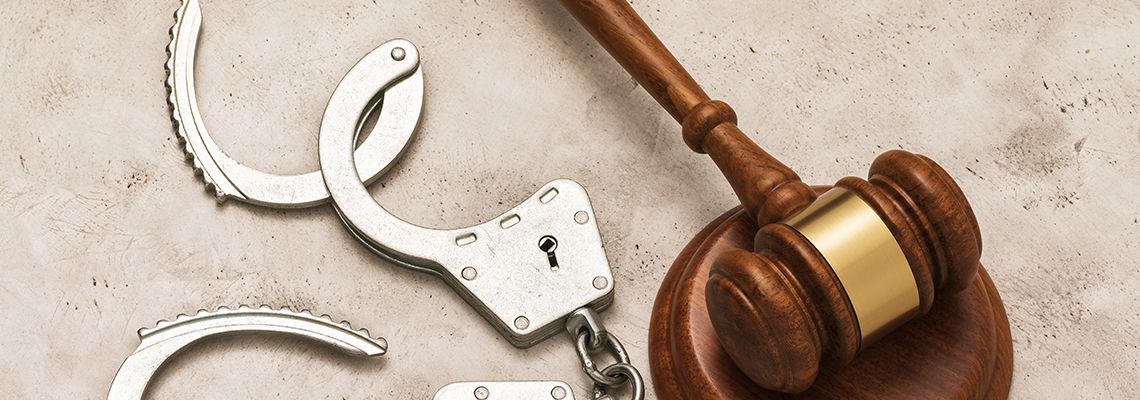
What Happens If Someone Jumps Bail and You're the Cosigner?
Bail is often the saving grace of individuals who’ve been arrested, allowing them to remain free while awaiting trial. However, cosigning a bail bond is a serious commitment that should not be taken lightly. What if the person you cosigned for skips bail? If they fail to appear in court, you, as the cosigner, could face serious repercussions.
At Smiley Bail Bonds, we understand how stressful this situation can be. Our family-owned business is known for being fast, reliable, and supportive. For over 20 years, we’ve served Tennessee clients across Nashville, Lebanon, Gallatin, Murfreesboro, Manchester, Brentwood, Franklin, Dickson, Lewisburg, Lynchburg, Jackson, Memphis, Chattanooga, and Knoxville.
If you’ve cosigned a bail bond and are worried the individual may or already have skipped bail, our team at Smiley Bail Bonds is here to assist you.
What Does It Mean to Cosign a Bail Bond?
When someone is arrested and cannot afford their full bail amount, they often turn to a bail bondsman for a bond. This is, essentially, a loan to cover their bail.
The bail bondsman typically charges a percentage of the bail as their fee (usually around 10-15%). To mitigate the financial risk of covering bail if the defendant fails to appear, a cosigner is often required. By cosigning a bail bond, you vouch for the defendant, and you will be required to agree to the following:
Be financially responsible for the full bail amount if the defendant fails to appear.
Make sure the defendant attends all scheduled court appearances.
This level of responsibility is considerable, especially when dealing with the courts. While you may want to help a loved one in need, you also need to consider the possible outcomes.
What Happens When Someone Jumps Bail in Tennessee?
When the defendant skips court (commonly referred to as “jumping bail”), several things happen that can directly affect the cosigner. Some of the common consequences include the following.
Financial Liability
Skipping bail causes the court to forfeit the bond, making the full bail amount due. The responsibility ultimately falls on the bail bondsman, but as the cosigner, it is your obligation to reimburse them.
For instance, if bail is set at $20,000 and the defendant fails to appear in court, the bail bonds company will be required to pay the full amount. As the cosigner, you would then be held responsible for covering their loss. This could result in garnished wages, forfeited collateral, or even legal action to recover the funds.
Collateral Seizure
If you used collateral to secure the bond, such as property, a vehicle, or other assets, those may be at risk. The bail bonds company can seize and sell the collateral to recover costs. Losing a home or vehicle due to someone else’s actions can be devastating, so think carefully before putting your assets on the line.
Strained Relationships
Jumping bail disrupts more than just court proceedings. It can harm your relationship with the person for whom you cosigned. The trust and goodwill that led you to cosign in the first place may vanish under the stress of dealing with financial fallout.
Legal Consequences
In certain situations, a cosigner may face legal repercussions if it is determined that they helped the defendant evade a court appearance. While rare, it’s an important consideration when taking on the responsibility of co-signing.
What Can a Cosigner Do if the Defendant Skips Bail?
If the worst happens and the defendant jumps bail, there are steps you can take to limit the damage. These steps can be broken down into the following.
Contact the bail bondsman immediately: Inform the bondsman of the situation as soon as possible. They will begin efforts to locate the defendant, often working alongside bounty hunters. Acting quickly may minimize financial and legal consequences for the cosigner.
Help locate the defendant: If you have information about the defendant’s location, such as addresses, phone numbers, or recent activity, share it with the bail bonds company. Cooperation can make the process smoother and potentially prevent your collateral from being seized.
Negotiate repayment options: If you cannot repay the bail bondsman in full, you may be able to arrange a repayment plan. While not ideal, it can be a less stressful alternative to losing collateral or facing legal threats.
Seek legal advice: As a cosigner, your decisions carry substantial implications. Consulting with an attorney can offer valuable guidance on the best course of action.
Pre-emptive Tips for Cosigners
No one cosigns a bail bond expecting the defendant to skip court. However, to prevent this from happening and protect your assets and collateral, there are steps you can take to protect yourself from potential consequences.
Know the defendant well: Only cosign for individuals you trust. This can reduce your financial liability if they skip court.
Ask questions before cosigning: Speak with the bail bond company beforehand to understand your obligations. A reputable company like Smiley Bail Bonds will take the time to explain every detail.
Monitor the defendant’s actions: Once the bond is cosigned, make sure the defendant attends the court dates and follows the court's instructions.
Avoid using irreplaceable collateral: If collateral is required, avoid pledging assets like your home or vehicle unless you’re confident in the defendant’s reliability.
Bail Bondsman in Nashville, Tennessee
At Smiley Bail Bonds, we support communities in Nashville and surrounding areas, including Lebanon, Gallatin, Murfreesboro, Manchester, Brentwood, Franklin, Dickson, Lewisburg, Lynchburg, Jackson, Memphis, Chattanooga, and Knoxville.
As a family-owned business operating for over 20 years, we offer fast, reliable services with integrity and compassion. From the initial arrest to court case resolution, our experienced team will guide you through the bail bond process. If you have questions about cosigning on a bail bond in Tennessee, call Smiley Bail Bonds today.
